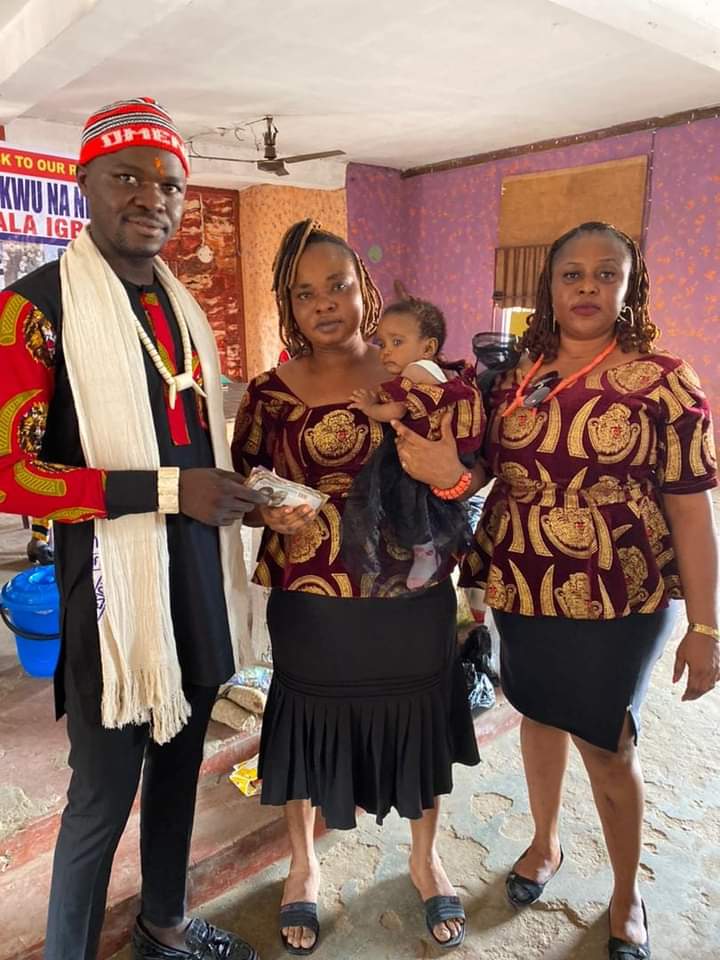In Omenala Igbo and among the ceremony of naming a child is one event that comes up almost few Days/weeks after the birth of a child. The naming ceremony of a child is often referred to as ikuputanwa or igu nwa aha, and it marks the formal presentation of the child to his people who comprise of his kinsmen, family, friends, well-wishers and the entire community at large.

The event is done to fulfill the traditional and social-religious obligations that are believed to become activated when a child is born, this is the rightful way as igbo tradition, as well as to thank God (chukwuokike Abiama) for the safe delivery of the child and to ask him to guide the child as he embarks on a journey through the earth.
The naming ceremony process in Igbo land occurs on either few days after a child is born depending part of igbo the childs comes from, .
It is pertinent to note that the Igbo calendar is quite different from the Standard English calendar. A week in Igbo land is made up of four days; eke, oye, afor and nwko. This implies that a child is named after 2 to 3 igbo weeks.
we’ll look at the process in communities that do the ceremony on the 12th day.
In some parts of Igbo land, there’s a myth which many people believe in.
That myth is that until a child is named, he/she belongs to two kingdoms; the kingdom of humans and that of unborn children.
There’s also another myth which states that every child has an option of staying in the world or going back to where he or she came from within the 12 day period. In the past, during this period, the male members of the family would consult diviners and fortunetellers to determine the abilities of the child.
Some Igbo communities are of the opinion that the 12 day period is a resting period for the mother of the child who recuperates after the 9 month long journey to childbirth. She also prepares for the naming ceremony within that period.
On the day of the occasion, friends, family, well-wishers, neighbor etc. all gather at the family’s compound or the naming ceremony ground. They are welcomed by the family.
As the ceremony begins, the child to be named is brought out by the Parents/paternal grandmother who hands him/her to the father or to the dedicator. In some communities, the father carries the child with one hand and carries palm wine on the other.
The Dedicator pours libations on the ground and thanked the Ancestors and the Chi (God of the child), and as he prays for and blesses the child, the people present respond with shouts of “isee”, a response during their naming ceremony.
How awesome!
The father announces the name of the child when the time is right. or In some parts of Igbo land, the eldest male member of the father’s family names the child.
However, others can still name the child. In the olden days, people were named with respect to the day that of the week that they were born. E.g. Nweke, Nwoye, Mgboye.
For instance, Nweke (nwa + eke) shows the child was born on an Eke market day.
we are gradually changing the narrative of slavery names in our land,